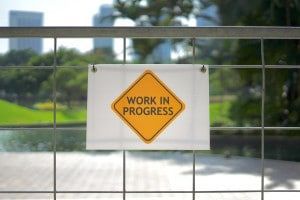Understanding Your Legal Obligations When Working On The Road

Road construction signs are perhaps not seen by most outside of the construction, demolition, and civil engineering industries as important to health and safety as the likes of protective clothing. Yet roadwork and construction signs are an incredibly important part of how individuals and businesses within such industries are able to meet their health and safety requirements.
However, the process of working out what signage will actually allow these requirements to be met is a whole other conversation. Thankfully, we’re here to break down where that information can be found.
Even despite the fact that site operators may have put all sorts of health and safety measures in place at a site, safety signs – such as highway construction signs – are still a requirement of any site involving roadworks. The regulations themselves, however, do not just apply to the likes of traffic control and under construction signs – they apply to health and safety signs across all industries.
So while the regulations are helpful and offer a basic outline of what is expected of site operators or employers who have responsibility for a workplace, it is important to understand that they are not specifically for roadworks. Thankfully there is a roadworks guideline out there – the Traffic Signs Manual. Chapter 8 of this manual, which was rewritten in 2009 to cover modern traffic considerations, details everything that a site operator needs to know about roadwork signs – such as the proper usage of roadworks and construction ahead sign plates. So these are two materials that should be consulted during the design and planning stages of a traffic management plan.
After that has been achieved, it’s time to purchase the appropriate signage and equipment that is suited to what is required of a particular site. To do that, you need a good supplier of roadwork signs. Make sure they have experience in your industry. For example, if you work with excavation, using sheet pile you want someone who understands your safety needs. Sheet pile comes in many variations and the best safety businesses understanding this.
Custom Construction Signs Versus Wholesale Signs
Custom construction signs are sometimes sought by companies that work within the construction, demolition, and civil engineering industries . However, many companies rely very much on buying wholesale construction safety and road work signs. This is due to the age of construction work and how long signage has existed; as many potential hazards, pitfalls and considerations have already been identified. This means that signs have, by and large, been produced for nearly every situation. So in what situation (if any) would you need to have custom signs produced?
Well, construction signs that are customized can be found in quite a lot of situations actually. For example, companies operating a roadworks site will want to inform locals who regularly use the road that such roadworks will be taking place. Custom signs can be created and placed along with the proposed site in advance that includes the dates during which such work will take place, as well as a contact number for residents who may have questions regarding the work. Within the construction industry, operators may want particular construction yard signs produced that are specifically tailored towards certain machines or peculiarities that are only found on a particular site.


